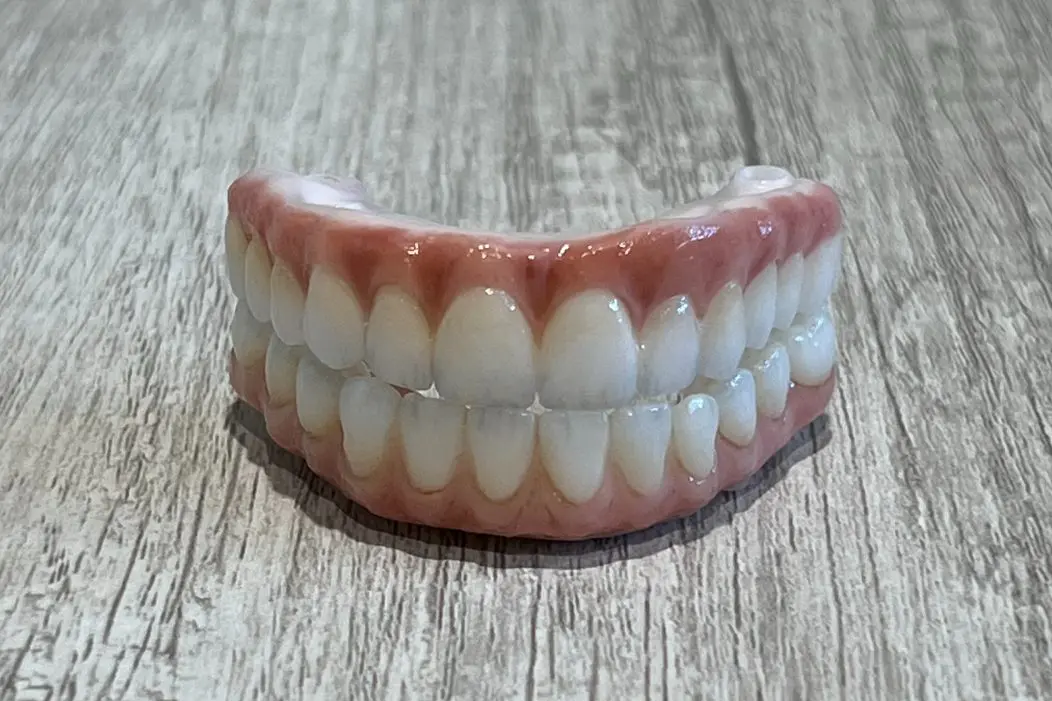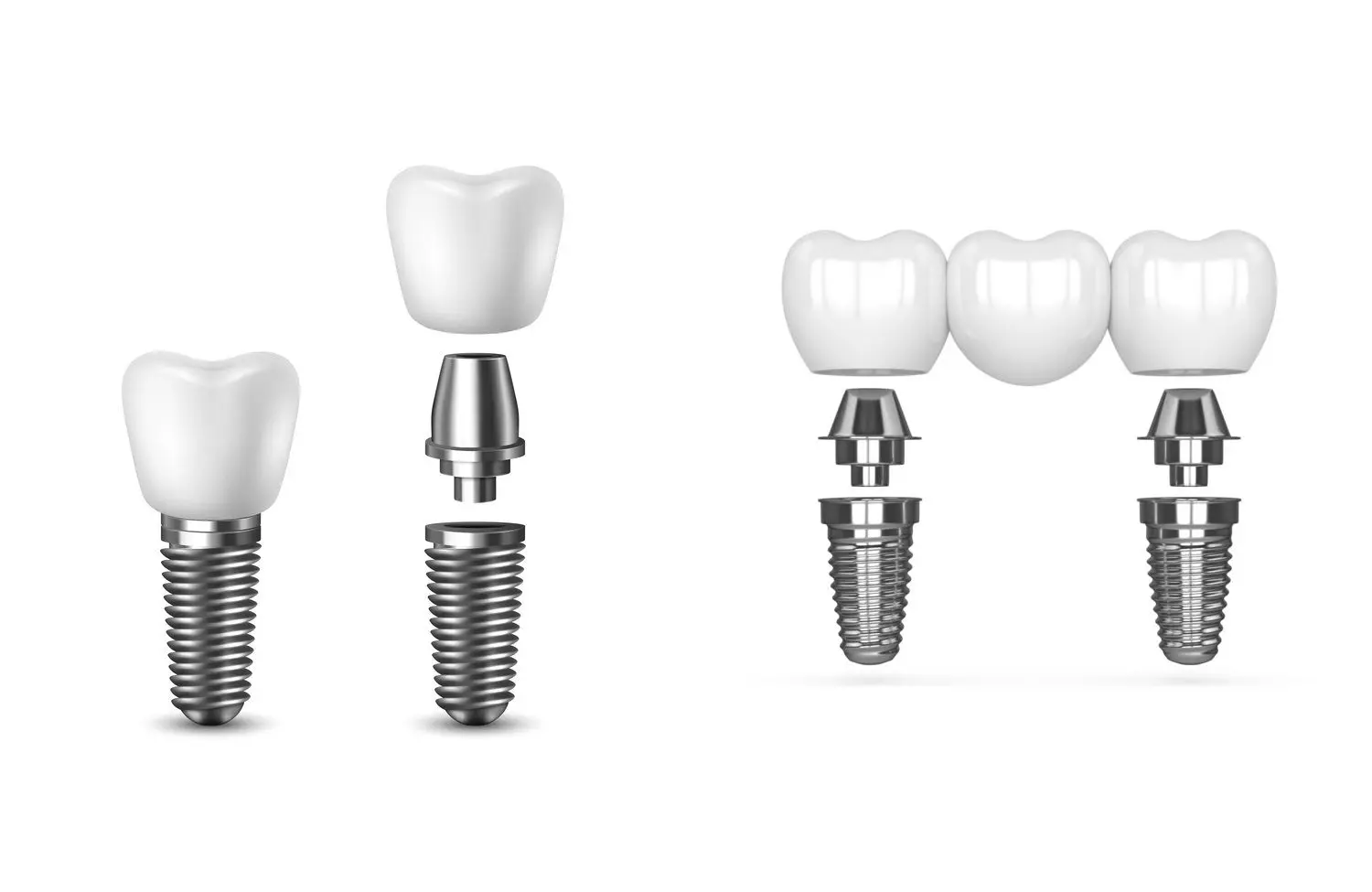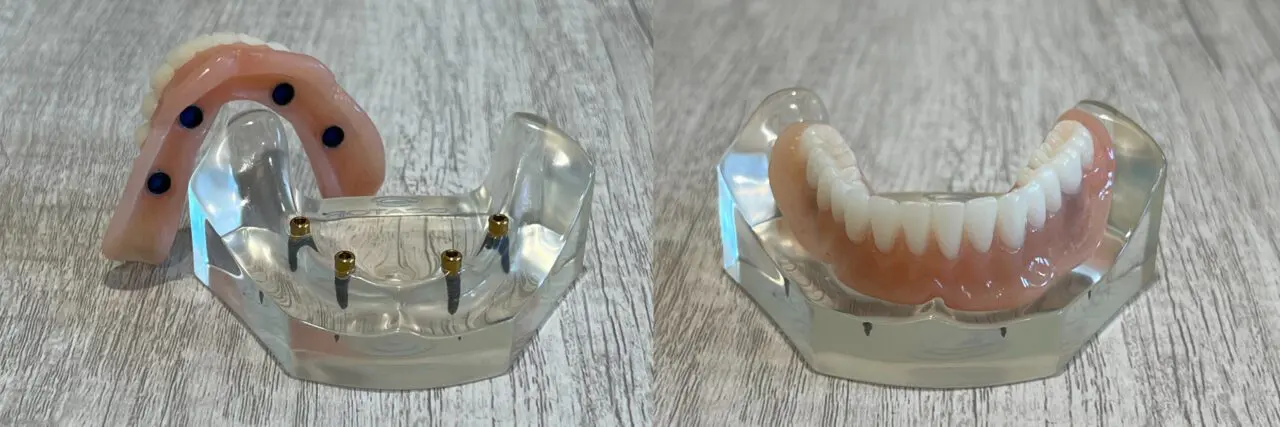Frequently Asked Questions
Select a procedure from the list below to view FAQs.

Caring for your teeth is very easy, but consistency is key. Just like we’re supposed to brush and floss natural teeth, we should do the same with our All-On-4 teeth and implants. A few minutes a day is all it will take to keep your mouth and implants healthy. Brushing your bridges with a soft bristle tooth brush and cleaning under them with a water flosser (WaterPik is a very popular, well-known brand) a few times a day is all it takes.
Smoking can increase the risk of implant complications, so we recommend not smoking with dental implants. Diabetics should also be aware of an increased risk for complication with dental implants. Controlling your diabetes is very important for the long-term success of your implants.
Other than that, simply follow up with your doctor regularly throughout the year for quick evaluations of your new implant teeth.
Mini dental implants are not even related to what we do at Park View Family Dental for our All-On-4 teeth in a day procedure. Please proceed with caution at any office recommending mini dental implants as a permanent solution. They have a very high failure/complication rate.
Snap-in implant dentures are a good option for some patients. We also provide this service and have an entire page dedicated to these if you want to learn more. They can be a more affordable alternative to the All-On-4 Teeth in a Day dental implant procedure.
Significant bleeding will have stopped before you leave the clinic, however, expect to have some slight bleeding (oozing) for 1-3 days after the procedure. In addition, you will most likely notice increased salivation when we first put your denture(s) in. When this increased saliva mixes with a little blood, it can look like a lot of blood. If heavy bleeding continues, please call the office.
An old home remedy that still works really well to help clotting and stop bleeding is the use of tea bags. Just get a regular tea bag, get it damp, squeeze out the excess water, place it on your extraction site or sites, and the bags will help you clot. Multiple tea bags can be used if needed. Replace the tea bags if they get saturated with blood. This process can be repeated as many times as you need.
- ice packs
- wash cloths you don’t mind throwing away
- comfortable clothes you don’t mind throwing away
- soft foods (a good rule is you can eat anything you can cut with a fork)
What is unique about this procedure, and what allows us to attach to your implants from day one, is that all of your implants will be rigidly splinted together by your new teeth (the implant bridge). Splinting them together prevents the micro-movement of the implants that can lead to failure early on. Basically, your implants and bridge all support each other.
Your dental implants will be made of titanium, the same material used in artificial hip and knee joints, so your jawbone will naturally grow around and attach to them over time.
Yes. We offer a variety of payment options including third party financing. We work with our patients in any way possible to get them smiling again.

It depends. Ideally, we would need to spread the dental implants out to be able to remove a portion of the palate in a snap-in denture. With our All-On-4 procedure, we can guarantee the ability to remove the palate, but that’s not always the case with snap-in dentures.
When we are able to remove the palate, this increases the ability to taste for many patients, and also increases hot and cold sensitivity, making for a more natural experience. For those patients with a severe gag reflex, removing the palate of the denture can also help provide relief.
Typically 1 to 2 times per year. This will depend on how many implants you have, how strong your bite is, how frequently you take your dentures in and out, and several other factors.
WARNING: PLEASE DO NOT BITE YOUR DENTURES INTO PLACE ON YOUR IMPLANTS! This will wear out your inserts significantly faster. Only place your implant dentures in by hand.
Significant bleeding will have stopped before you leave the clinic, however, expect to have some slight bleeding (oozing) for 1-3 days after the procedure. In addition, you will most likely notice increased salivation when we first put your denture(s) in. When this increased saliva mixes with a little blood, it can look like a lot of blood. If heavy bleeding continues, please call the office.
An old home remedy that still works really well to help clotting and stop bleeding is the use of tea bags. Just get a regular tea bag, get it damp, squeeze out the excess water, place it on your extraction site or sites, and the bags will help you clot. Multiple tea bags can be used if needed. Replace the tea bags if they get saturated with blood. This process can be repeated as many times as you need.
- Ice packs
- Wash cloths you don’t mind throwing away
- Comfortable clothes you don’t mind throwing away
- Soft foods such as:
– soups
– yogurt
– cottage cheese
– smoothies
– protein shakes
– eggs
– mashed potatoes (gravy optional)
While titanium dental implants do have a 95+% success rate, yes, they can still fail. Some of the things that can cause them to fail:
- failure to integrate into the bone
- smoking
- diabetes
If an implant fails within the first year, your dentist will replace it at no charge to you.
- Snaps | Periodically you’ll need to change out the snap rings in your implant dentures. These wear and lose retention over time and as you take your teeth in and out. They’re quick and affordable to have changed out.
- Cleanings | Just like with natural teeth, you’ll need to have your implants cleaned periodically. Any buildup on your implants will be removed and your dentures will be cleaned.
- Periodic re-fittings | Your mouth will still change over time, so your dentures will need to be re-fitted to ensure their best performance and ensure that unnecessary stress isn’t being put on your implants.
- Home maintenance | It only takes a few minutes a day. Take your dentures out 1-2 times per day and brush them with a denture brush or very soft bristled toothbrush. Also, don’t forget to clean your implants. scrub these with a very soft dental brush also.

Care for them like natural teeth:
- Brush and floss twice a day.
- Get cleanings regularly at intervals recommended by your dentist.
You may continue to bleed slightly for the first 24 hours after your implant placement. If you feel that you are bleeding more than you should be, please call the clinic.
An old home remedy that still works really well to help clotting and stop bleeding is the use of tea bags. Just get a regular tea bag, get it damp, ring out the excess water, place it on your extraction site or sites, and the tanic acid in the tea leaves will help you clot. Multiple tea bags can be used if needed. Replace the tea bags as they get saturated with blood. This process can be repeated as many times as you need.
While titanium dental implants do have a 95+% success rate, yes, they can still fail. Some of the things that can cause them to fail:
- failure to integrate into the bone
- smoking
- diabetes
If an implant fails within the first year, your dentist will replace it at no charge to you.

